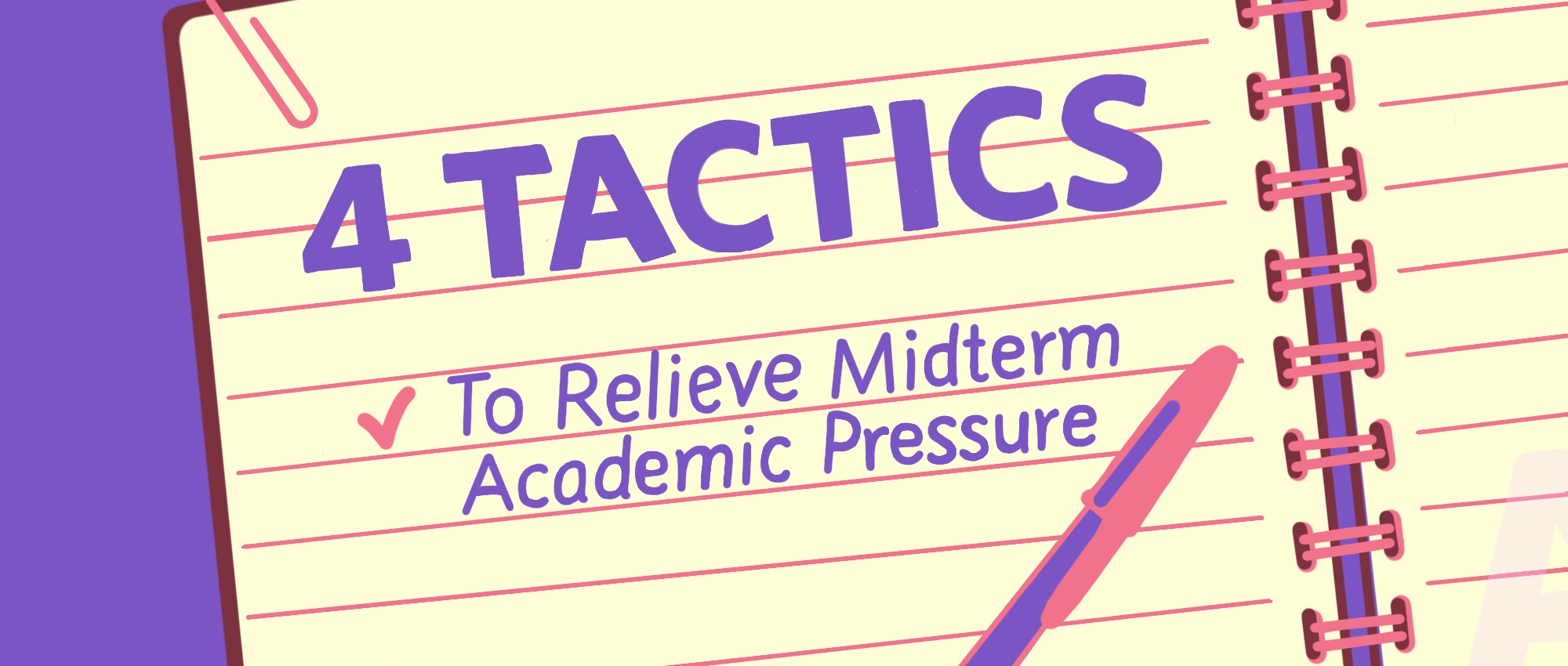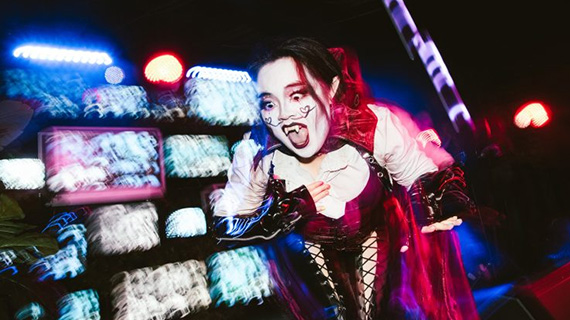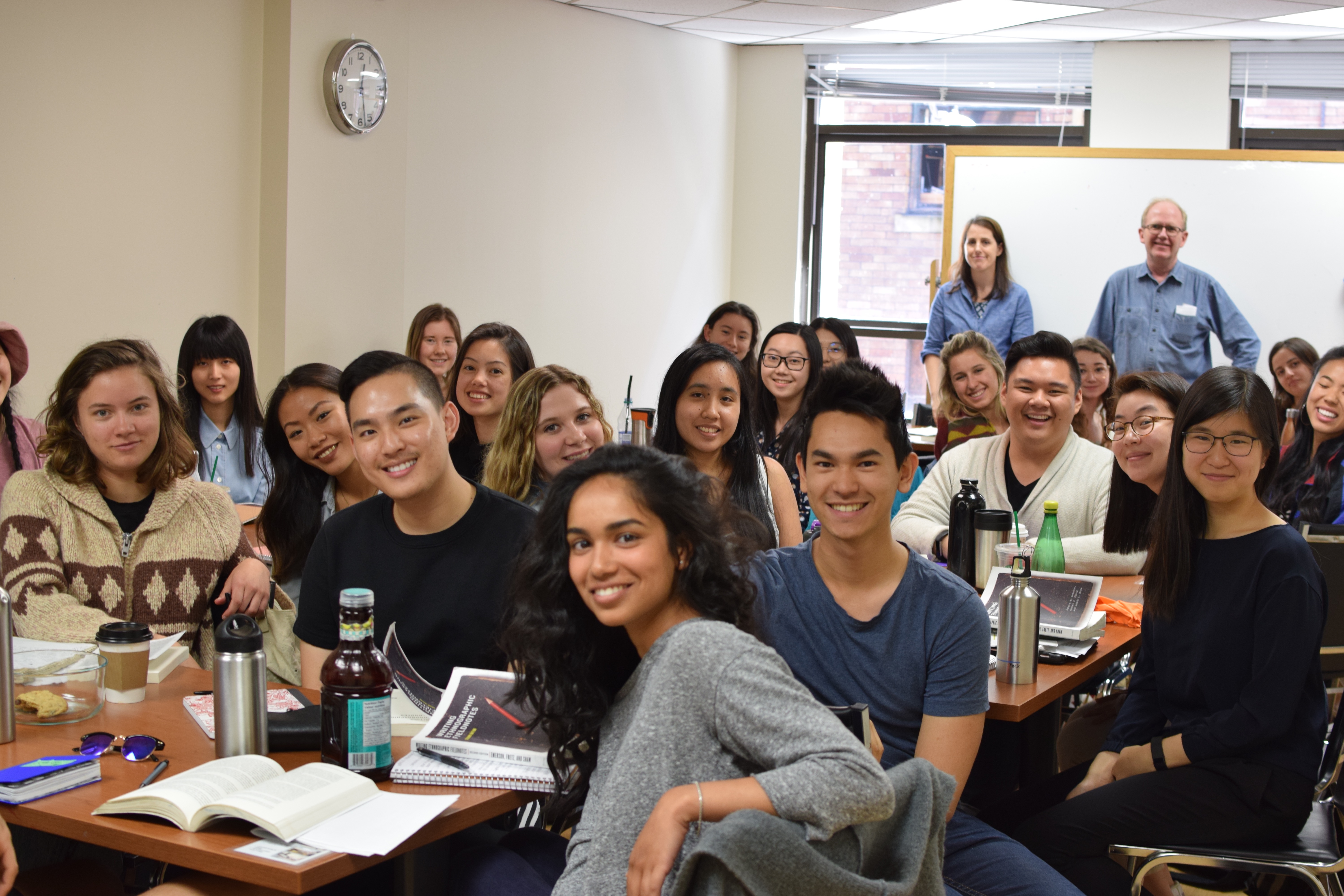

Students from the 2017 cohort of the UBC Urban Ethnographic Field School.
On a sunny June Monday morning, 30 UBC students gathered on the second floor of the UBC Learning Exchange in Vancouver’s Downtown Eastside. They began by discussing current events from the past weekend, including news that tenants of the nearby Balmoral hotel had been evicted after the city declared the building uninhabitable.
The students are part of the Urban Ethnographic Field School, a six-week, six-credit course offered by the departments of sociology and anthropology. The course gives students an opportunity to work with a community organization while conducting ethnographic research. Students collaborate with a partner agency to work on projects that help to promote the organization’s mission, while reflecting on social, economic and political issues in the Downtown Eastside.
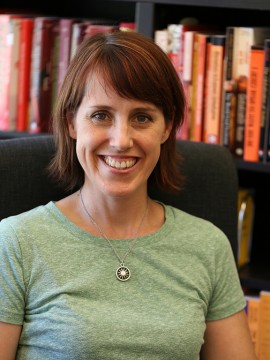

Kerry Greer (Instructor, Sociology) is co-teaching the field school for the second time this summer. After years in the non-profit sector working with refugee children in Portland, and families experiencing homelessness in Indiana, Greer came to UBC to do community-based teaching.
Sociology instructor Kerry Greer is co-teaching the course alongside anthropology professor Patrick Moore. After years of working in the non-profit sector in the United States, Greer came to UBC in 2014 to do community-based teaching. One of her goals with the field school is to challenge implicit assumptions or fears students may have about the Downtown Eastside and to help them appreciate the neighbourhood’s strengths.
“What’s unique about the field school is that we take something that on the surface appears to be familiar, and it quickly becomes unfamiliar,” says Dr. Greer. “By talking to people first-hand, they start to realize that there is a lot of heterogeneity in society and they’re learning that these are people just like them.”
As part of the course, students participate in neighbourhood walks and attend a variety of field trips to organizations like Insite, Vancouver’s legal supervised injection site.
“In my previous Sociology classes at UBC we learned about Insite, but there’s something very different about going there in person and studying two blocks away from it,” says Andy Holmes, a third-year Sociology student, who is completing a placement at the Food Stash Foundation – a charity that redistributes edible food waste to charities around Metro Vancouver. “That’s what I like about this program – you’re going out into the real world rather than studying it from afar.”
Fourth-year sociology student Nayantara Sudhakar is shadowing support workers at the Rice Block, a drug detox and treatment support unit for women.
“There are people dealing with things that you can never imagine,” she says. “I’m from India and I saw adversities all the time, but never did I think it was going to be here.”
Sudhakar says the course provide a supportive context to discuss challenges. “We have debriefing sessions almost every day where we’re allowed to talk about our feelings and what we’ve been going through. Kerry will open it up for discussion so our peers can give us advice – social support is there.”
Community-Based Research
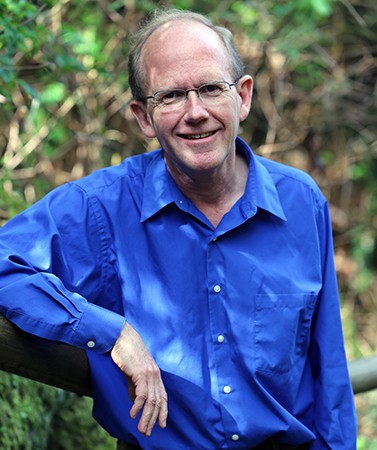

Patrick Moore (Professor, Anthropology) co-taught the course for the first time. Moore says that the field school offers students a chance to engage in real ethnographic experience which is an important part of anthropology. “It gives them skills which are important for employment and future training.”
A key focus of the field school is to introduce students to collaborative, community-based ethnographic research. During their morning seminars at the Learning Exchange (which take place four days a week), students learn techniques for participant observation, writing field notes, conducting in-depth interviews and interpretative analysis.
That day, the students discuss interview ethics and strategies. How do you build rapport with your interview subject? How do you broach controversial topics, like asking someone to discuss their experience with substance abuse? How do you make sure you’re not asking biased questions?
“This course has taught me a lot about research ethics which was unexpected, and which I’m really grateful for,” says Andy Holmes, who hopes to pursue graduate studies on queer politics and social movements.
“As far as their command of sociology, the Urban Ethnographic Field School is unequivocally a valuable experience for going to grad school,” says Greer. “It’s teaching them advanced research methods, it’s demanding that they become very proficient writers, it’s giving them the opportunity to collect original data that they can use as a senior thesis, or the writing sample that they produce in the field school as part of their application, and it gives them a sense of whether they want to go to grad school and do field work.”
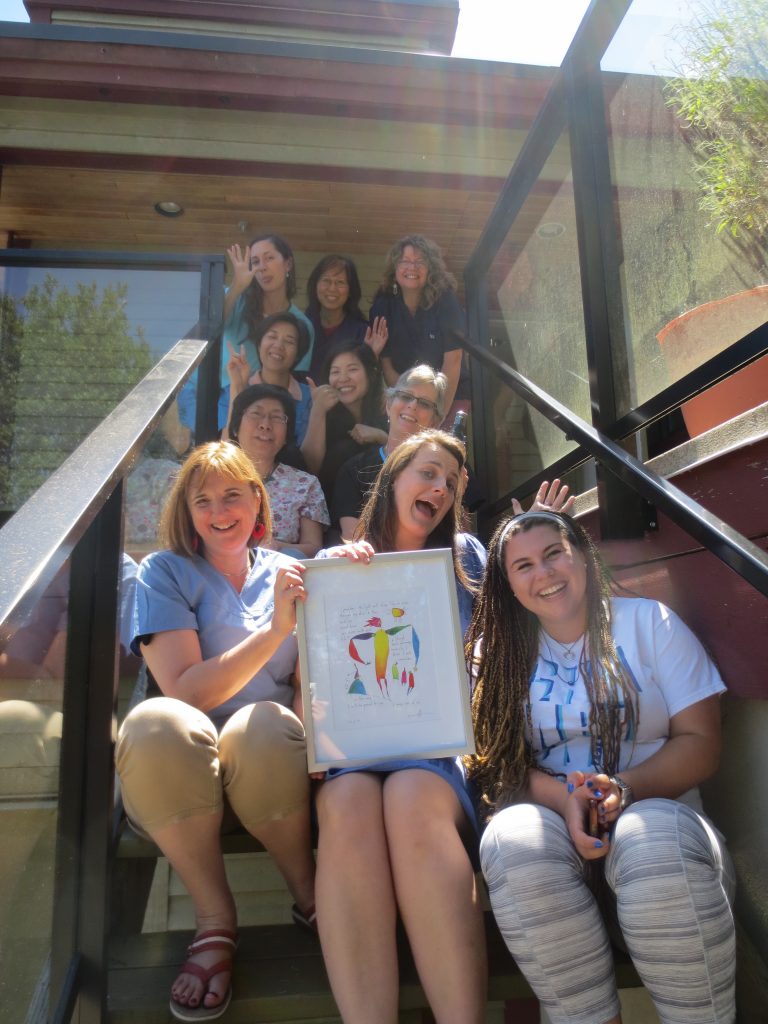

Victoria Ord participated in the Urban Ethnographic Field School in 2015. She was offered a job at the Frog Hollow Neighbourhood House after completing her placement there.
Building Career Skills
Beyond fostering research skills, Greer says the course helps students build career skills. “One of the things the field school is designed to do – as far as I’m concerned – is to help them see how workplaces work, so they can imagine a role for themselves. Many students would like to work in the non-profit sector, so here’s an opportunity for them to go in and do an ethnographic study of a workplace that’s helping people in need.”
Some of her past students have gotten jobs from their field school placements. Victoria Ord was offered a paid position at the Frog Hollow Neighbourhood house after completing a field school placement there in 2015. “I ended up completing almost three times the required number of hours because I loved it there,” says Ord, who is now pursuing a degree in Social Work and plans to become a front-line worker. “I got to understand more about grant applications and what goes into planning a program… I made lasting connections both personally and professionally.”
Narantaya Sudhakar also hopes to continue her work at the Rice Block after the field school wraps up. “Hopefully I’ll get a job here,” she says. “If you do good work and they like you, the partners are always open.”
What advice do current students have for others who might consider it?
“I have to say this course is not easy,” Holmes acknowledges. “It’s very condensed. It feels like we’re doing eight months in six weeks.”
But Sudhakar says that “for all the work you have to put in it’s more than worth it.”
“If you’re thinking about applying and haven’t yet, go ahead and do it,” says former student Elizer Elliper, who worked at the Mount Pleasant Neighbourhood House researching the experiences of seniors in English conversation groups. “It’s an experience that will be quite personal and humbling. This is one of those programs that I think everyone should do, no matter what discipline they come from.”
_____________________________
Are you interested in participating in the Urban Ethnographic Field School Next Year?
All undergraduate students are invited to apply to the UEFS. Applications open in January and close in March (consult the website for details). In past years, more students have applied than can be accommodated and students should be prepared to make a strong case for themselves. While marks in previous, relevant classes are considered, other evidence of aptitude for working with communities is also carefully considered.
